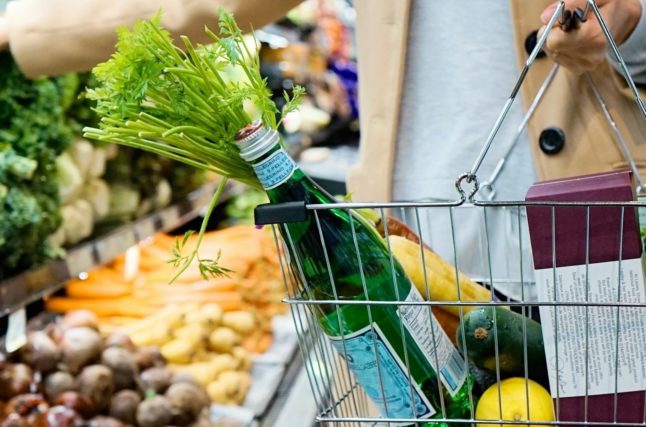Fuel – i.e. gasoline, petrol, diesel – has always been expensive in Switzerland and it is becoming even more costly to fuel up.
The price jumped from 1.40 to 1.80 francs per litre in 2021, according to Roland Bilang, director of Avenergy Switzerland, formerly the Swiss Petroleum Association.
Fuel cracked the CHF2 per litre mark in early 2022, due at least in part to Russia’s invasion of Ukraine.
Experts warned in early March that the CHF3 per litre mark was not out of the question due to the ongoing international turmoil.
This difference of 40 cents represents an increase of 20 francs to fill an average tank.
READ MORE: Why is Switzerland about to become even more expensive?
Several factors account for the climbing costs of fuel
The Ukraine conflict has seen a worldwide spike in oil prices, which has flow-on consequences for prices at the pump.
Another factor is that demand remains stronger than supply, which increases the prices, said Laurent Pignot, spokesperson for motoring organisation Touring Club Suisse (TCS).
Switzerland imports nearly half of its crude oil from Africa; the remaining half comes from Mexico, the United States and Kazakhstan, according to government figures.
Another reason for rising prices is the cost of transporting oil on the Rhine. “As the level of the river is low, the boats cannot be fully loaded and have to make more round trips”, Pignot pointed out.
Driving in Europe: What are the Covid rules and checks at road borders?
“Consequently, the price of gasoline increases by a cent per litre”, he added.
Also, since January 1st, gasoline in Switzerland has been taxed an additional 3.7 cents per litre to finance environmentally friendly fuels.
However, even with price hikes, filling up a tank is still cheaper in Switzerland than in neighbouring countries, which is unusual, as prices for most goods are lower across the border.
A reason for this is comparatively lower tax rates on petrol in Switzerland. Only Austria has lower fuel taxes than Switzerland (among Switzerland’s neighbours).
But cross-border shopping trend is reversed when it comes to gasoline.
“German, but above all French, ‘fuel tourists’” get their petrol in Switzerland, Blick reports.
So if you’ve been crossing the border to go shopping, fill up your tank when back on Swiss territory if you want to save.
Can you save money on petrol in Switzerland, and if so, how?
Petrol distributors and stations compete with each other, which is good news for consumers.
RTS public broadcaster analysed petrol prices at various stations in several regions and found lowest prices at Rasthof Platenenhof station in Gampelen (BE).
Another cheap fuelling option is a few kilometres away, at the Pit-Stop de Boudevilliers in Val-de-Ruz in canton Neuchâtel.
In fact, RTS reported that this whole region benefits from cheaper gasoline due to its proximity to the Cressier-Cornaux refinery and large volume of purchases.
Another low-cost location is in Samnaun, canton Graubünden in the region of Engiadina Bassa / Val Müstair.
The price there is 30 percent cheaper than on the notoriously expensive Lake Geneva region.
The reason for this price disparity is that this community of just over 700 inhabitants is a historic fiscal enclave that does not apply VAT or other taxes.
Other options include EK Automobile in Kestenholz, Solothurn and Tankstelle Fiechter in Teufenthal, Aargau.
But what if you don’t live in these areas?
You can still save some money on petrol if you do your research and know where the best (meaning: cheapest) places are to fuel up in your region.
Here are some tips:
Autoclub memberships often offer discounts on petrol. ACS members and TCS members can save between two and five cents per litre.
Larger petrol retailers will also often have discount deals, while Swiss supermarkets also offer deals with particular gas station chains.
Prices are usually the highest on (or close to) motorways, in or near large cities, and at branded chain stations. You can find better deals at smaller, independent stations away from main roads.
However, you should avoid going too far out of your way to save on fuel.
“A one-cent difference on the price of the litre justifies a detour of two to three kilometers, at most. Otherwise, the excess consumption drowns the economy on a 50-litre tank”, said TCS’s Erich Schwizer.
One useful website listing cheaper petrol options throughout Switzerland is this.
READ MORE: How can you save on your household energy bills in Switzerland



 Please whitelist us to continue reading.
Please whitelist us to continue reading.
Member comments